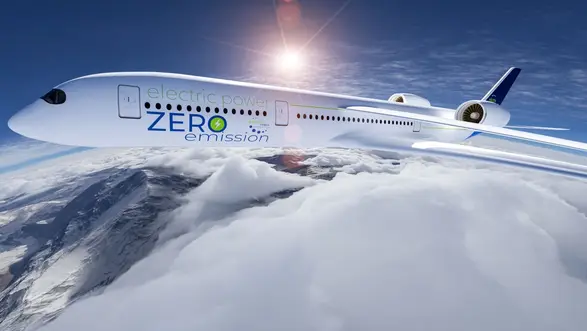Industrial sectors that are difficult to decarbonize

Industrial sectors that are difficult to decarbonize
Decarbonization and defossilization = abandonment of fossil fuels and gas
Synthetic fuels
Aviation, shipping and off-road vehicles are among the industrial sectors that are difficult to decarbonize. Therefore, in addition to choosing the right means of transportation, the use of synthetic fuels also plays an important role in reducing pollutant emissions. Synthetic fuels can be produced using CO2 sources and green hydrogen. The use of these fuels is critical, as the overall efficiency is low due to the many conversion stages in the production process and the processes are expensive.
azare is investigating the technical, economic and legal options for supporting the market ramp-up of synthetic fuels in the areas mentioned.
Aviation
The continuous increase in greenhouse gases in air traffic is in contradiction to the goal of making flying climate-neutral by 2050. While the use of electrically powered aircraft would be possible for short distances of up to a few hundred kilometers, it is not suitable for long and medium-haul flights due to their low energy density (kWh per kilogram or per liter). New technologies or fuels are required - such as sustainable aviation fuels (SAFs), renewable fuels of non-biological origins (RNBOs) and others.
Shipping
Both inland and ocean shipping should achieve climate neutrality by 2050. It is therefore essential to switch to the use of synthetic fuels such as methanol, ethanol, liquid organic hydrogen carrier (LOHC), ammonia and liquid hydrogen (LH2).
Off-road traffic
For off-road vehicles such as construction site vehicles, cranes, etc., electric or hydrogen-powered vehicles should be considered depending on the available terrain and infrastructure access.
